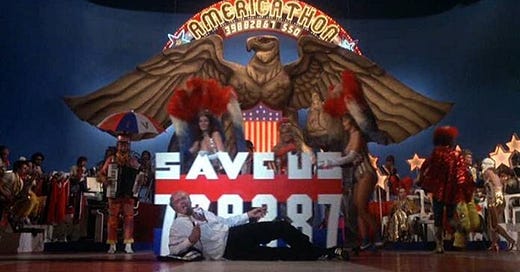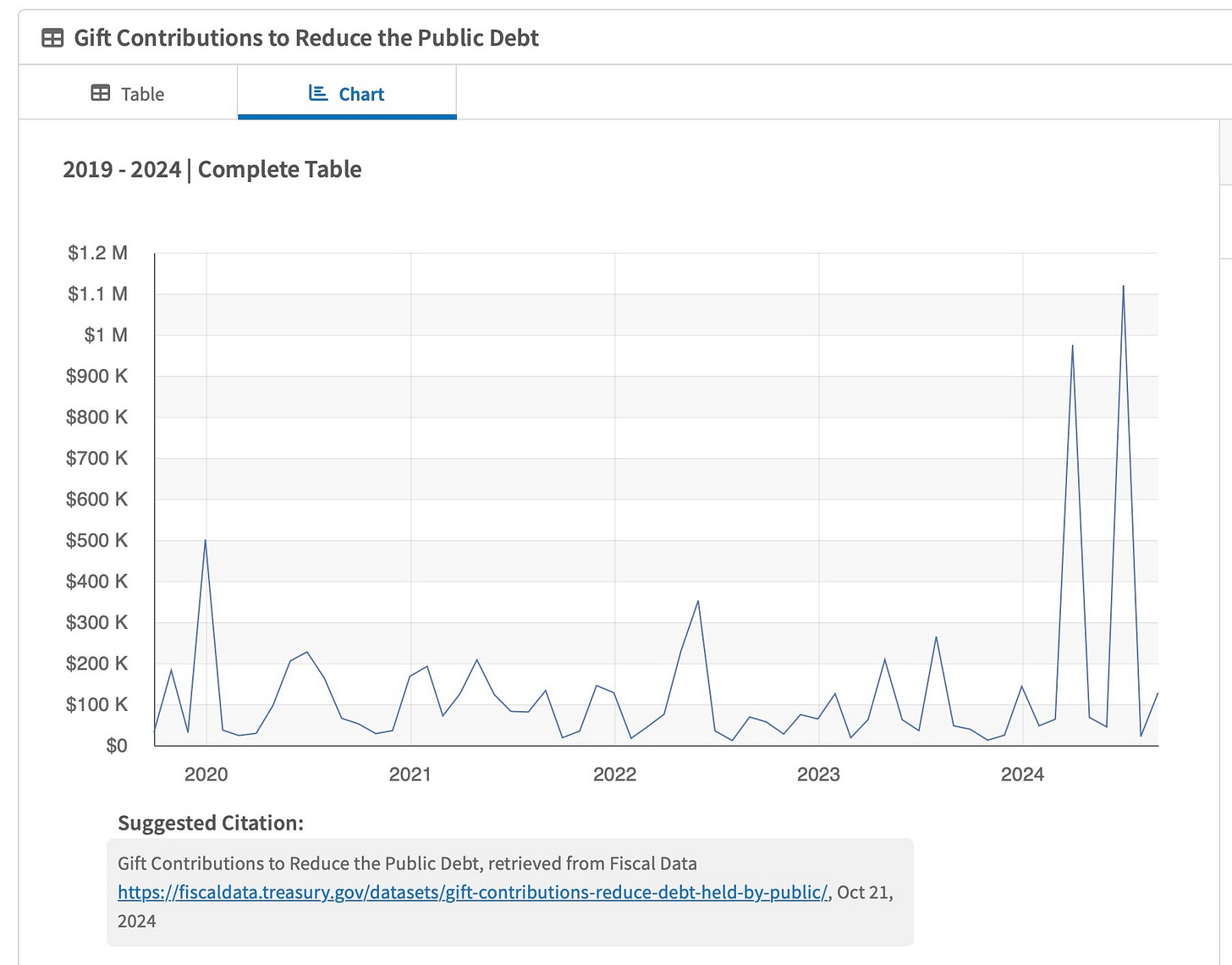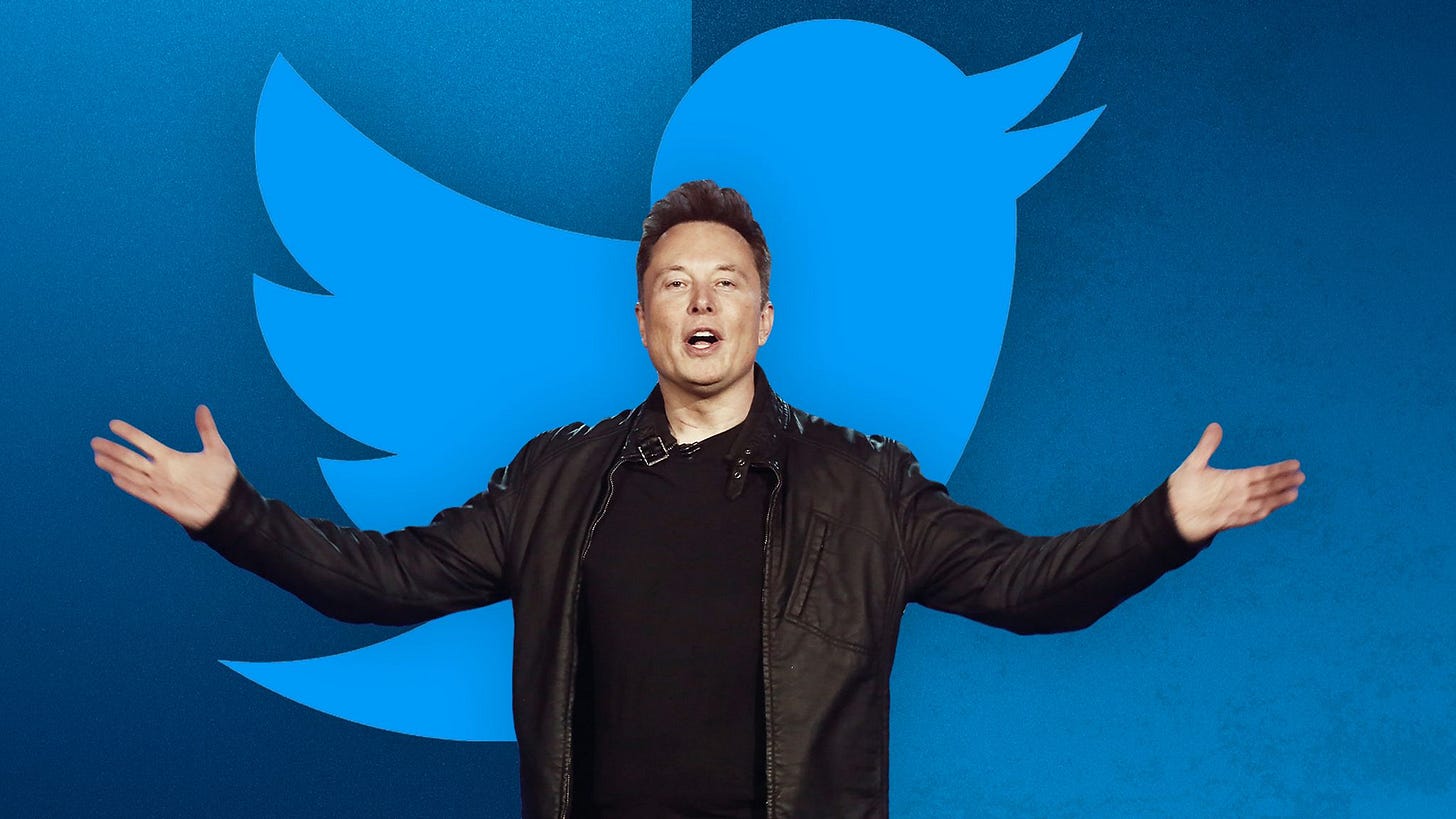Are you a believer in the power of Good Government? Do you believe that taxes are the price we pay for living in a society? Do you think the government can make good use of more money than it currently collects?
Did you know that you can put your money where your mouth is?
Most probably realize that they can choose not to take every available deduction when completing their tax returns, but many might not know that they can actually donate money to the federal government. And that they can direct that money to paying down the public debt.
It's understandable that you and I and other average Joes may be unaware of this (for the record, you can send money via pay.gov). I do recall, however, past tales of very wealthy people arguing that they aren't being taxed heavily enough. The argument now, as it was then, is "if you feel that way, why not just cut a check?" Imagine the good will they could buy with the soak-the-rich crowd by presenting a Big Check for eight or nine or ten figures to the government in order to "give back" or whatever other spin their flacks choose to put.
Here's the reality.
The amount donated to the government for debt reduction is a pittance.
What might we conclude?
My conclusion is that when someone says "we" need to pay more in taxes, he or she doesn't mean "me." It's supposed to be "you." As in, say it with me, Other People's Money.
America has a freeloader problem. Our tax code is more progressive (as in it hits high earners harder than low earners), by far, than the European nations the Left loves to point at as great places to live. The lower half of earners 'contribute' just 3% of their income to the federal government, and 60% (perhaps more) of people receive more from the government than they pay.
The government will spend 37% more than it receives this year, adding $1.83T to a national debt that totaled $33.1T at the beginning of the year. The Left's remedy for this isn't a reduction in spending. Indeed, Harris is promising trillions in new spending. Nor is the Left proposing a European taxation regime, which includes soaking everyone coming (income) and going (consumption), so that citizens actually pay for what they receive in government services.
No, their remedy is "take money from someone else." As in further tax the already-taxed, and find new and creative ways, such as taxing unrealized income of "just a few billionaires," of taking money from a few to feed their endless rapacity.
In 1979, the satirical comedy Americathon portrayed a bankrupt United States, where the dollar is worthless and everyone transacts in gold coin, that, as it turns out, was mortgaged to a cartel of Native Americans who threatened to foreclose and repossess the nation. The President, portrayed by John Ritter, decided to hold a telethon (the 1970s version of GoFundMe) to rescue the nation. Much farce ensued, as did the emergence of a villain whose goal was "to allow representatives of the United Hebrab Republic, formed by the merger of Israel and the Arab states, to purchase what remains of the country." Imagine that.
The film's denouement (spoiler alert) is what prompted my recollection. In the final scene, the telethon falls a few thousand short of its goal, but billionaire Sam Birdwater, head of the native American cartel, walks onto the stage and drops a bag of gold to cover the difference. America is saved by a billionaire’s largesse.
It wasn't a good movie, with an IMDB rating of 4.5/10 and a Rotten Tomatoes score of 36%. No matter. Like all farces and satires are intended to do, it points at certain realities. One of those is that people only start to react when they are personally jammed up. As long as the fantasy that the nation can continue on its current path by taxing others persists, people won't demand change. You can see it in the bipartisan aversion to spending cuts, you can see it in the outrage at the mere mention of fixing Social Security, and you can see it in the paltry voluntary donations made to help pay down the national debt.
Many people believe they are better stewards of their own money than the government. However, they also believe that the government is a better steward of Other People's Money than those people themselves are. Or, at least, this is what a rational person should conclude by witnessing the behavior of Good Government types.







If it is not a flat tax, then the goal is not raising revenue to pay for public services, but rather, to engage in social engineering. Every single study from every single group has returned the same result about who pays the lion's share of taxes, yet the moronic 'fair share' talking points remains viable in some circles.
Equal time: The Right will pay lip service to trimming “non-defense, discretionary”, spending which is a small percentage of the total budget, and offer a fanciful interpretation of the Laffer Curve to claim we can balance the budget by cutting taxes.